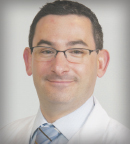
[Data from the TRANSCEND study] support the use of lisocabtagene maraleucel in a broad range of patients and in the outpatient setting.— Jeremy Abramson, MD
Tweet this quote
Another CD19-directed chimeric antigen receptor (CAR) T-cell therapy may be poised to enter the marketplace for aggressive relapsed or refractory large B-cell lymphoma, based on a high rate of rapid and durable complete responses achieved with lisocabtagene maraleucel. The phase I TRANSCEND NHL 001 study was presented at the 2019 American Society of Hematology (ASH) Annual Meeting & Exposition by Jeremy Abramson, MD, Associate Professor of Medicine, Harvard Medical School, Boston, and Director of the Jon and JoAnn Hagler Center for Lymphoma at Massachusetts General Hospital Cancer Center.1
Lisocabtagene maraleucel is an investigational anti-CD19, 4-1BB CAR T-cell product administered separately at equal target doses of CD4-positive and CD8-positive CAR T cells. The findings come from the largest trial yet of an anti-CD19 CAR T-cell therapy in aggressive large B-cell lymphoma, Dr. Abramson said.
Among the 344 patients in the study, treatment with lisocabtagene maraleucel yielded an objective response rate of 73% and a complete response rate of 53%. After a median follow-up of 12 months, the median duration of response had not been reached, and more than half the responders remained in response at 12 months, Dr. Abramson reported.
Additionally, the rate of severe cytokine-release syndrome and neurologic events was low—2% and 10%, respectively—with a median onset of 5 and 9 days, respectively. “This supports the use of lisocabtagene maraleucel in a broad range of patients and in the outpatient setting,” he said.
TRANSCEND Details
In TRANSCEND, 344 patients with large B-cell lymphoma who had received at least two prior lines of therapy underwent leukapheresis, and 269 ultimately received lisocabtagene maraleucel at one of three dose levels (50 × 106, 100 × 106, and 150 × 106). Bridging therapy was allowed at the discretion of the treating investigator and was given to 59% of patients. CAR T-cell infusion was preceded by 3 days of lymphodepleting therapy with fludarabine and cyclophosphamide. Median turnaround time before the administration of lisocabtagene maraleucel was 24 days by the end of the study, Dr. Abramson said.
The study enrolled patients with baseline characteristics that might have excluded them from other trials. This included patients with secondary central nervous system involvement and those with moderate medical comorbidities, including patients with creatinine clearance as low as 30 mL/min or left-ventricular ejection fraction as low as 40%. There was no lower limit of absolute lymphocyte count for eligibility.
KEY POINTS
- Lisocabtagene maraleucel, a CD19-directed CAR T-cell therapy, proved effective in the 344-patient phase I TRASCEND NHL 001 trial in aggressive large B-cell lymphoma.
- Heavily pretreated patients, many with adverse baseline features, responded at a rate of 73%, with 53% being complete responses.
- Severe cytokine-release syndrome occurred in only 2% of patients and severe neurotoxicity in 10%.
“Some 89% had high-risk features known to portend a shortened overall survival,” he said. These characteristics included high-grade B-cell lymphoma and double- or triple-hit lymphoma, poor performance status, primary refractory disease, refractoriness to second-line or later therapy, lack of prior hematopoietic stem cell transplant, and lack of prior complete response to any treatment. Patients had a median of three prior lines of therapy; 35% had undergone a prior autologous or allogeneic transplant; 67% were chemotherapy-refractory; and 44% had not achieved a complete response to prior treatment.
The efficacy analysis was based on 256 patients. The safety profile was similar across the three dose levels, so these data were pooled.
Positive Outcomes
At a median follow-up of 12 months, the objective response rate was 73%, complete response rate was 53%, and time to first response was 1 month. At 6 months, 60.4% of responses were ongoing, as were 54.7% at 12 months.
“Responses were seen across all patient subtypes,” Dr. Abramson noted. He added that patients who underwent bridging therapy and patients with the highest tumor burdens were less likely to achieve complete responses.
The median progression-free survival was 6.8 months, and 44% of patients remained progression-free. Median overall survival was 21.1 months. At 1 year, 58% of patients were alive, including 86% of complete responders.
“For double-hit lymphoma, progression-free survival was similar to that of diffuse large B-cell lymphoma not otherwise specified. Responses were very encouraging as well for primary mediastinal and transformed follicular lymphoma,” he said.
In response to a question from an attendee at the ASH meeting, Dr. Abramson noted that in the intent-to-treat population, the overall response rate was 61%, and the complete response rate was 44%.
Safety Profile
“Evaluation of treatment-emergent adverse events shows an overall favorable safety profile for [lisocabtagene maraleucel],” he said.
Neutropenia was the most common adverse event, with a rate of 63% overall and 60% for grade ≥ 3. Other grade ≥ 3 toxicities included anemia (38%) and thrombocytopenia (27%). Ongoing grade ≥ 3 cytopenia at day 29 was observed in 37% of patients, and 12% had severe infections. Seven patients (3%) died while on treatment; none were related to cytokine-release syndrome or neurotoxicity.
The incidence of any-grade cytokine-release syndrome was 42%, with 2% grade ≥ 3 and a median onset of 5 days. Neurologic events occurred in 30% of patients, with grade ≥ 3 in 10% and a median onset of 9 days. Seven percent of patients were admitted to the intensive care unit. For cytokine-release syndrome, 3% of patients required vasopressors, 19% received tocilizumab, and 21% received corticosteroids. “Importantly, nearly all cases of cytokine-release syndrome and neurotoxicity were entirely reversible,” Dr. Abramson said.
In TRANSCEND, lisocabtagene maraleucel was administered in the outpatient setting to 25 patients, of whom 25% remained as outpatients for the duration of treatment; 75% were ultimately hospitalized, at a median time of 5 days, “but there was very little severe toxicity in this group,” Dr. Abramson said. He indicated that outpatient dosing is being further explored “in additional trials that include a broader population of patients.”
DISCLOSURE: Dr. Abramson has consulted for AbbVie, Amgen, Bayer HealthCare Pharmaceuticals, Celgene, EMD Serono, Genentech, Gilead Sciences, Janssen Biotech, Juno Therapeutics, Karyopharm Therapeutics, Kite Pharma, Merck, MorphoSys, and Novartis.
REFERENCE
1. Abramson JS, Palomba ML, Gordon LI, et al: Pivotal safety and efficacy results from Transcend NHL 001, a multicenter phase I study of lisocabtagene maraleucel in relapsed/refractory large B cell lymphomas. 2019 American Society of Hematology Annual Meeting & Exposition. Abstract 241. Presented December 7, 2019.


